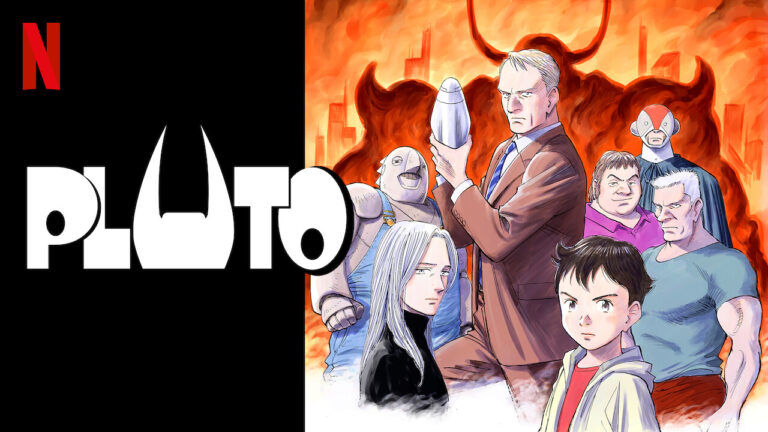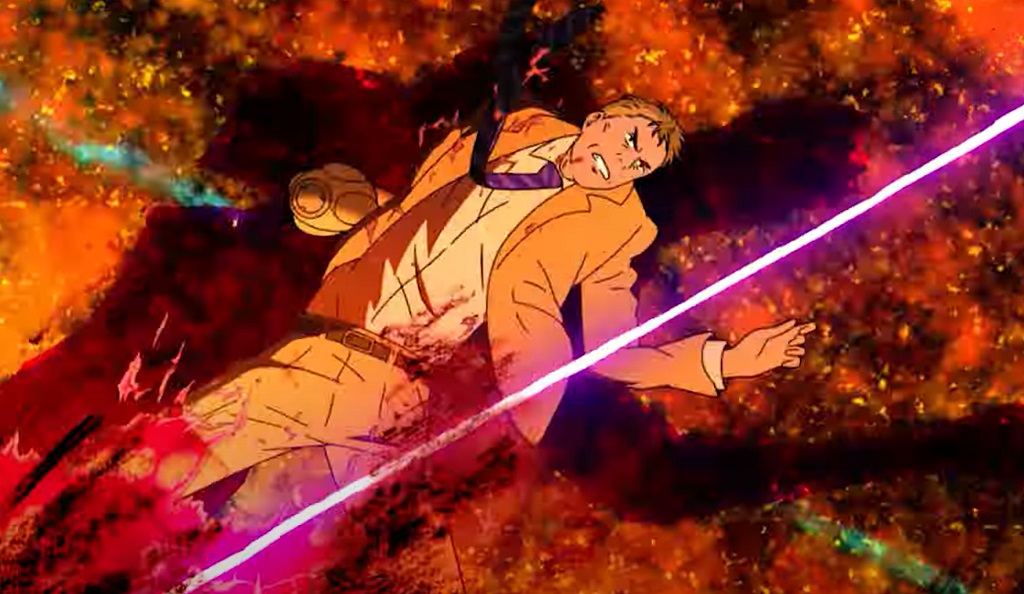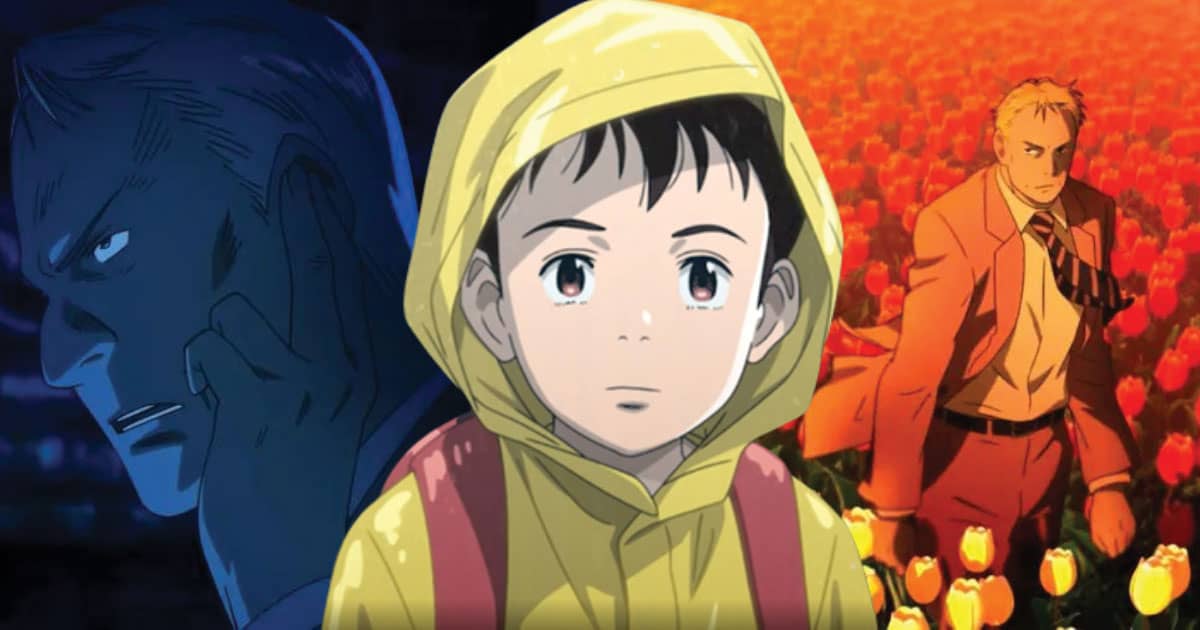
Pluto, is an animated sci-fi Netflix series that adapts the eponymous manga by authors Naoki Urasawa and Takashi Nagasaki, almost fourteen years after its manga run came to an end. The anime directed by Toshio Kawauchi, has Masao Maruyama, Taro Maki, and Yuji Yamano as Executive Producers. Whilst Takahiro Miyata served as the CG and SFX director.
The series unrolls between the Eastern and Western hemisphere of the world with a variety of characters that juxtapose robot behaviour with human emotions through a mesmerising visual journey. We are catapulted in a world where artificial intelligence lives the life of humans, but without putting their lives at risk. In fact, Article 13 of the International Robot Laws clearly states that “A robot shall not be able to hurt or kill humans.” Actually, A.I. prototypes need to confront an incumbent threat to save the human race. It all begins with a series of murders whose investigations are assigned to Europol robot inspector Gesicht. The corpses are found with horns in their heads, just like the God of Death depicted in mythology. In Ancient Greece this deity was called Hades, in Ancient Rome it was called Pluto.

Throughout the narrative we get acquainted with several super robots, who not only protect the Earth and its inhabitants, but become inspirational and aspirational characters who teach us the true value of humanity. Mont Blanc (Hiroki Yasumoto) cares for the forests in Switzerland he looks after; North No.2 (Kôichi Yamadera) has given up fighting and discovers a passion for music; Brando (Hidenobu Kiuchi) loves his family and believes in the future; Hercules (Rikiya Koyama) is a gentle warrior and reliable friend; Epsilon (Mamoru Miyano) refused conscription to raise orphans of the war; Gesicht (Shinshû Fuji) is the loving husband of Helena (Romi Park) and the hero par excellence.
These are the robots that have the potential of being weapons of mass destruction, but become actual emblems of pacifism. The adventures of these compassionate cyborgs intertwines with the lives of scientists such as Professor Ochanomizu (Toshio Furukawa), Dr. Tenma (Eizô Tsuda), Dr. Ronald Newton-Howard known for his photon energy discovery, the mysterious Professor Abullah (Kazuhiro Yamaji) and the genius Dr. Goji. The latter is the creator of an extremely powerful robot Pluto (Toshihiko Seki), whose backstory and evolution will not fail to surprise. The complex denouement further includes cute robotic pets and creepy teddy bears; men in charge of national security, like police superintendent Tawashi and inspector Nakamura; simple civilians like Adolf Haas, whose past experiences have lead to nurture resentment towards robots. There is also the world of politics with the dictator of the Kingdom of Persia Darius XIV and President Alexander of the United States of Thracia (Ken’yû Horiuchi).
Above all there is the representation of future generations, represented by two robotic children — Atom (Yôko Hikasa) and Uran (Minori Suzuki) — who become emissaries of peace and embody the parable of Pinocchio. These two aspire to have a heart and be human, just like the fairytale character. In the end they prove themselves much more compassionate than any of the human beings that surround them.
This aspect, undoubtably follows in the footsteps of the latest tendency that celebrate the humanity of A.I., like Gareth Edwards’ The Creator. The human race is more complex, to the point that even when it acts righteously it can come across as intelligible. As one of the robots observes, the virtuous human beings in Pluto swing between Seizensetsu (innate goodness) and Gizen (hypocrisy). Robots have certainties, humans have hope. Humans have remembrances that tend to fade away, whereas artificial intelligence maintains a clear and fresh memory, unless it’s completely erased. Yet many traits of mankind permeate in the most advanced of cyborgs and consequently it’s hard to tell the difference between robots and humans.

This sci-fi series embraces all the poignant themes of our time. P.T.S.D. is displayed with great sensitivity. We see how one child called Wassily was the only survivor of his village during the war and couldn’t speak anymore for the trauma. He could only pronounce the word “Bora.” Moreover, an underlying environmental message traverses the plot, as flower fields and buds that never wither strongly entwine with the unravelling of events, with hydrangeas and tulips acquiring special significance. In terms of greed becoming the greatest threat for our planet, ancient tales serve as universal morals, like the legend about the Nanabu people who were deceived by another tribe and gave all their horses, houses, and land in exchange for gold. They eventually lost everything and threw themselves into the volcano, transforming themselves into a spirit that would one day rise again.
In Pluto humans are the flawed ones, since A.I. embodies a perfected version of mankind, that nevertheless can be filled with unbalanced emotions such as sorrow, anger and spite. This is what makes cyborgs dangerous. In fact, the ultimate message that is bequeathed repeatedly is to break the cycle of hate. A recommendation that reverberates stronger than ever, now that we are experiencing a time of warfare.
Final Grade: B+

